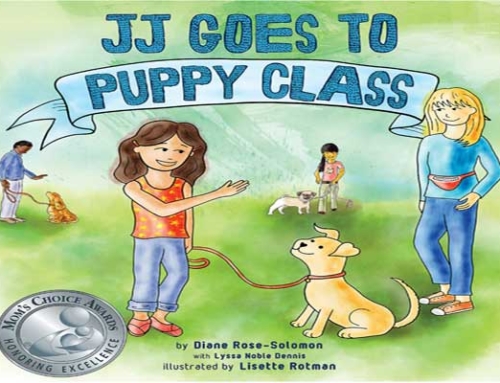On Their Own Terms
Disclosure: This post may contain affiliate links
So why did this book review take twice as long as I imagined it would? Simple. The book made me re-examine myself, and because it did, I had no idea where I wanted to start.

What's in this post
Share This Story!
On Their Own Terms
By KD Traegner, Founder & Editor-in-Chief
I’ve read the book at least three times now, skimmed it more times than I can count. I’ve bent the pages to mark important thoughts, highlighted quotes or paragraphs of interest, and even tucked notes on scraps of paper inside the book of my own thoughts on the topic. It’s the type of book that encourages you to rethink the things that are embedded in society, in our culture, and even in our own personal histories. I’m an avid reader, reading books since I was a very young child. I was blessed to have parents that passed their love of books onto me. I read very fast, most often finishing a book in several hours rather than in several days. So why did this book review take twice as long as I imagined it would? Simple. The book made me re-examine myself, and because it did, I had no idea where I wanted to start.
I’m talking about the book, On Their Own Terms: Bringing Animal-Rights Philosophy Down to Earth by Lee Hall and I recommend that you read it. The book takes animal-rights head on, diving into topics for advocates and aspiring advocates alike. If you question, “Can I really make a difference” and, “Where can I start” then this book is for you. Similarly, if you question animal-rights theory, want to learn practical responses for objections to veganism, or simply want to become a better animal advocate- then this book is for you.
Advocate for animals “on their own terms.” Hall clearly connects animal rights advocacy with genuine freedom of all beings, where animals are uncontrolled and living on their own terms. This theory changed my outlook on animal advocacy and has me looking deeper into my animal-rights advocacy: How do I challenge the daily domination that allows these crimes towards non-humans to arise over and over again? Does my advocacy “let them be?”
Advocacy means speaking with people in the language of justice. Our goals should never be hidden; our message must be clear and consistent for every audience. If animal sanctuaries need help, let’s support them. But let’s also cultivate the kind of thinking and discussion that will stop making these refuges necessary. Sanctuary workers, and people who report news about them, are best advised not to call the sanctuary’s animals “retired” (one battery hen sanctuary, for example, describes its mission as “working with the farmers to retire those working girls into a wonderful, free-range life”). Not only is this language patronizing, but former industry animals were never willing employees in our society, and refuge isn’t a payback for fair work. Nor should these animals be called by names that imply employment after being rescued (such as “ambassadors” for other animals of their kind or “educators” to the public); they owe us nothing, and it is our work to educate our society.
Have a clear and consistent message. Be cognizant of language used regarding animals. Educate the public.
“This path isn’t for the faint of heart. Animal rights, as old as the idea’s roots are, calls for a revolution in human thought.”
Revolution in human thought. Evolution.
Let’s strive to be honest. Truth is the one thing corporations can’t manipulate. Let’s not try to take two positions simultaneously; for example, by claiming in front of other advocates, as many activists do, to promote the vegan movement- but avoiding the word vegan and instead lauding better veal or cage-free eggs or a new slaughter method to the public. Watering down our principles (or at least making them sound less certain) is the pragmatic way, we’re often told, to animal rights. But is our role as educators to let people know what they can settle for, or what they could strive for? Holding out the easy route is not the respectful approach to the interests of non-human beings; nor is it respectful to those who steadfastly object to animal use. Let our acts and speech reflect what we know to be true, so we can open the door for big changes.
What about the people who object to veganism? Every vegan has been there at some point, being bombarded with illogical responses or questions about their veganism- how impractical it is, how the world will never be vegan, how we are wasting our time, love animals more than humans, and (my personal favorite) how militant ALL vegans are.
Veganism is about acknowledging a responsibility. If we are not living according to the vegan principle and imparting to others this same principle, veganism doesn’t exist. … Committed vegans will tell other this truth, then create nurturing social environments where new vegans feel a sense of community, a sense of being in the majority. This will empower us to show other show to think in a new way. The change we cultivate could become apparent relatively quickly in society and the law, and that’s good. By most indications, we have little time to spare.
And this book is so much more. It encourages people to broaden their minds and look at situations from another perspective- one where the autonomy of animals is important (and the goal). It is a book that I will continue to refer to as an animal advocate over and over again, and one that I will pass along to vegans and non-vegans alike.






Thanks for sharing your thoughts on this book. It’s on my “must-read” list now!
“On Their Own Terms” is available at http://www.amazon.com:
http://www.amazon.com/Their-Own-Terms-Lee-Hall/dp/0976915936/ref=sr_1_1?ie=UTF8&s=books&qid=1286810703&sr=1-1
Thank you Bob for posting the link! I posted the link to the book on the Friends of Animals site, but I should have posted this one too! Thank you again! :)
A hearty thanks to Your Daily Vegan for the spirited and encouraging commentary. Thanks also for all your kind support on Twitter.
I’d be happy to converse further on your comment board (and Twitter too) about any aspect of vegan living and animal rights addressed in On Their Own Terms.
Lee.
Pretty much the exact reaction i had, and my copy looks much the same – thanks for sharing!